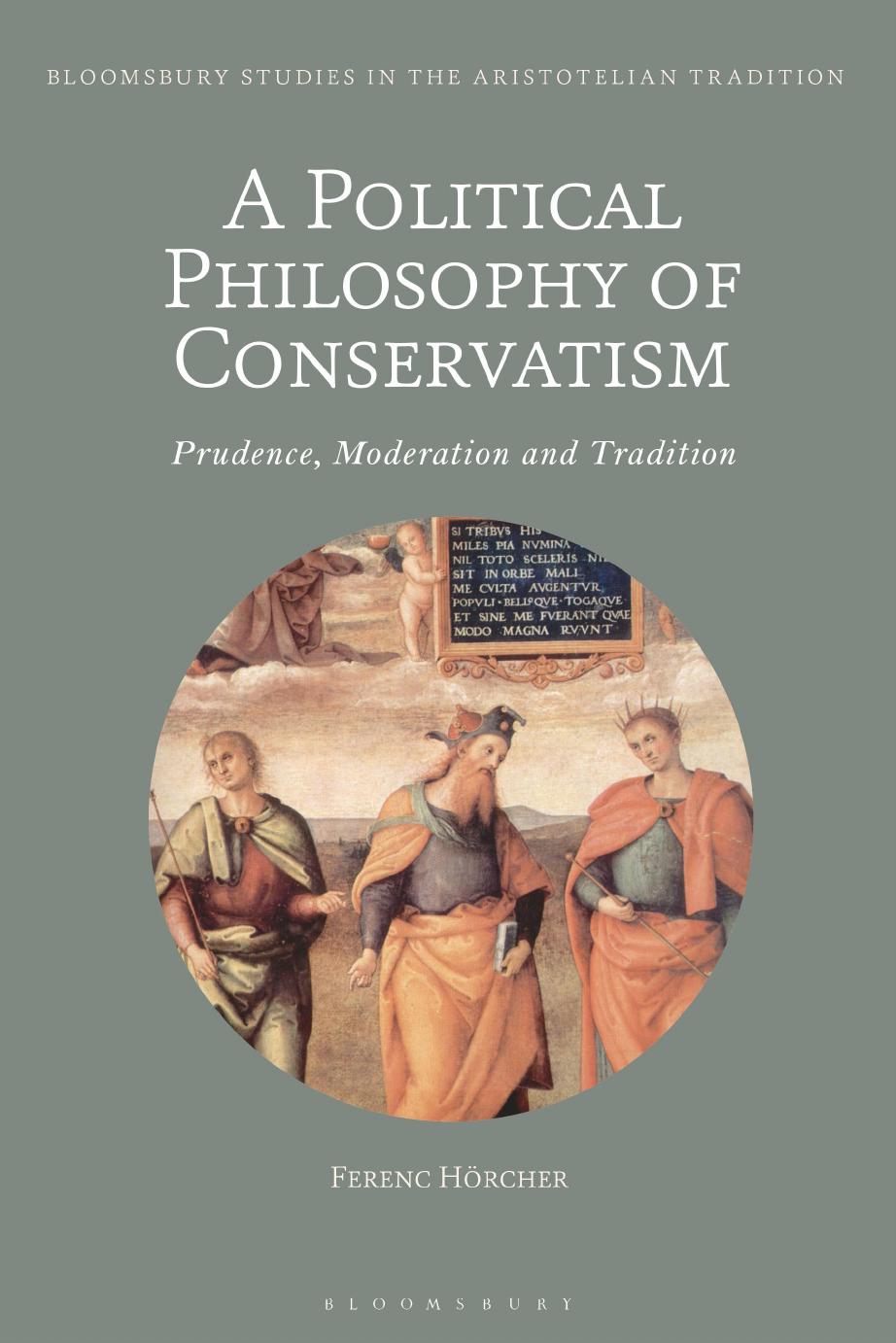A Political Philosophy of Conservatism by Ferenc Hrcher;

Author:Ferenc Hrcher;
Language: eng
Format: epub, pdf
ISBN: 9781350067202
Publisher: Bloomsbury UK
7
The prudent individualâs resources: Virtues and character
So far, we have considered three major obstacles before informed decision-making and finding and executing the right action in politics. These are the constraints of agency, time and knowledge. The conclusion one can draw from such momentous barriers before informed decision-making and action is that one should have very modest expectations as far as social order and a flourishing human community are concerned. Look at the twentieth century: a period of long steps forward in what could be labelled the âdemocratizationâ of society, and yet it proved to be a period of national and international social disaster, when human brutality was raised to unprecedented levels.
However, beside obstacles there are sources of hope, as far as the practically wise (prudential) activity of agents in politics is concerned. In what follows, we take a look at two major factors that provide resources to help individuals arrive at the right decisions in politics. What is more, these factors play a major role in determining the relationship between the individual and the different types of groups of which she or he is a member, and more generally, the way individual agents and their communities relate to each other. First, therefore, we look at the individual agentâs resources and, more particularly, at what is called virtue on the personal level. This is followed by a short overview of the communal support of individual agentâs judgement and action, of the individual preconditions of what is going to be called here âconservative republicanismâ.
Personal resources: Virtue and character
Annas and Aristotle: The skill analogy of virtue
Although virtue ethics is a fashionable topic since Anscombeâs famous paper on moral theory, it is still not obvious what exactly is meant by the term âvirtueâ.1 As there are competing approaches to the concept itself, one has to make decisions before embarking on a discussion of it. In what follows, I will rely on a single author, Julia Annas, and her approach to virtue in her slim volume Intelligent Virtue (2011).2
Virtue was a key notion in ancient, medieval and early modern ethics. The present volume has only recalled this history as far as views on prudence are concerned. But how should we proceed to make sense of the more general term, virtue? Our presentation of the virtue ethical position will focus on the relationship between two major concepts: virtue and character. This choice is made on the assumption that the two concepts together provide the substance of individual resources of political agents in their political activity â a claim that is not based on Annas, who only talks about the moral dimension of virtue, disregarding the communal, political aspects of it. Relying, however, on her elaboration of the two notions, I will venture to take one further step and talk about virtue politics â with the help of another guide, this time Catherine Zuckert.3 Finally, this part of the chapter will conclude with a look at the virtue politics of the Italian Renaissance, as presented in the writings of James Hankins.
Download
A Political Philosophy of Conservatism by Ferenc Hrcher;.pdf
This site does not store any files on its server. We only index and link to content provided by other sites. Please contact the content providers to delete copyright contents if any and email us, we'll remove relevant links or contents immediately.
The remains of the day by Kazuo Ishiguro(8356)
Tools of Titans by Timothy Ferriss(7768)
Giovanni's Room by James Baldwin(6778)
The Black Swan by Nassim Nicholas Taleb(6737)
Inner Engineering: A Yogi's Guide to Joy by Sadhguru(6424)
The Way of Zen by Alan W. Watts(6271)
Asking the Right Questions: A Guide to Critical Thinking by M. Neil Browne & Stuart M. Keeley(5338)
The Power of Now: A Guide to Spiritual Enlightenment by Eckhart Tolle(5310)
The Six Wives Of Henry VIII (WOMEN IN HISTORY) by Fraser Antonia(5212)
Astrophysics for People in a Hurry by Neil DeGrasse Tyson(4989)
12 Rules for Life by Jordan B. Peterson(4155)
Housekeeping by Marilynne Robinson(4041)
The Ethical Slut by Janet W. Hardy(4022)
Skin in the Game by Nassim Nicholas Taleb(3955)
Double Down (Diary of a Wimpy Kid Book 11) by Jeff Kinney(3900)
Ikigai by Héctor García & Francesc Miralles(3853)
The Art of Happiness by The Dalai Lama(3834)
Skin in the Game: Hidden Asymmetries in Daily Life by Nassim Nicholas Taleb(3713)
Walking by Henry David Thoreau(3671)
